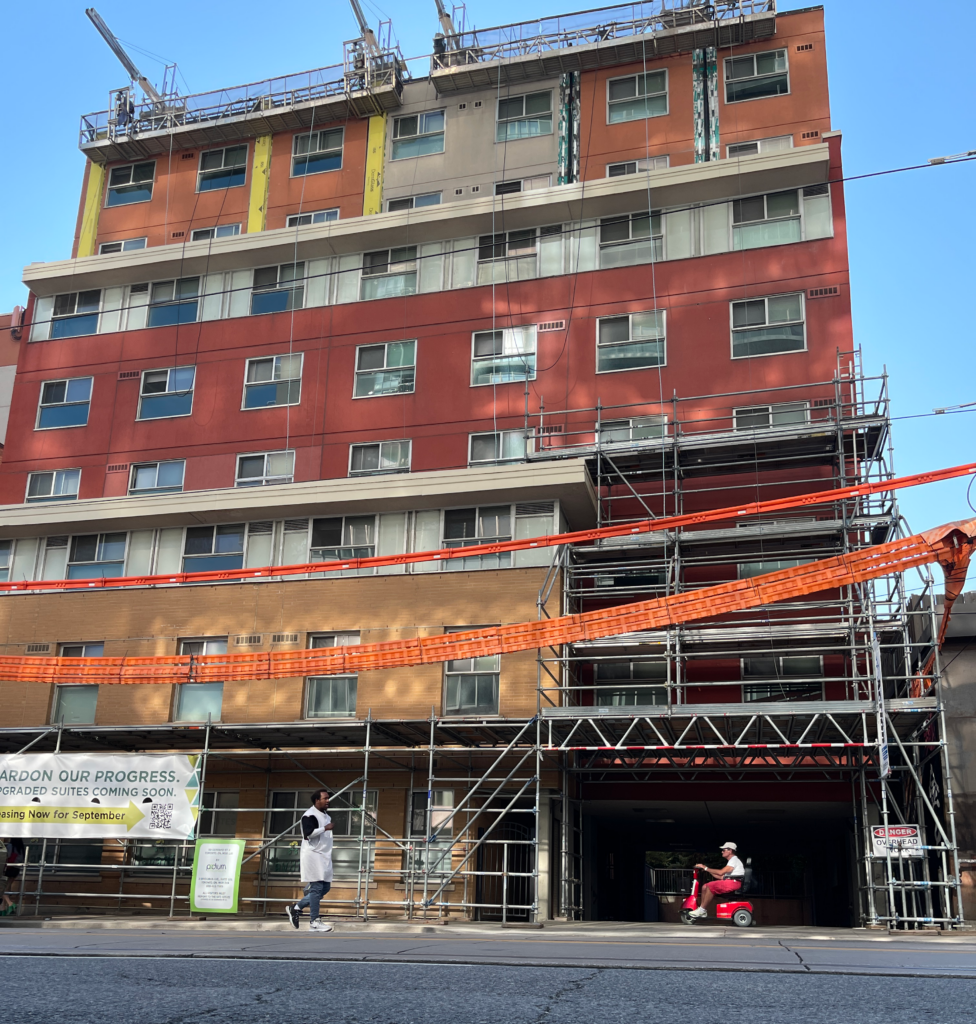Listen to the full story here:
After a turbulent start to the year, Canada’s housing market has stabilised near its all-time highs, according to a report by rentals.ca. Despite the Bank of Canada announcing rate cuts through the end of 2024, hopes of the housing market continuing to cool are low.
Murtaza Haider, a civil engineer at Toronto Metropolitan University (TMU), said there are multiple other factors that influence the price of the market in larger ways than the principal interest rate, such as the federal government abandoning social housing projects in favour of incentivizing private real-estate development.
“The more time it takes to build homes, because of the delay in approvals, because of the delay in getting the pre-sales, the higher the price, because population continues to increase,” he said.
The delay he is referring to comes from pre-sales, when construction companies sell upwards of 80 per cent of apartments in a property before construction even starts. These pre-sales are a large part of the funding required for new construction, according to Haider, and it is not uncommon for developers to stop new projects due to a lack of pre-sales.
Not all economists agree with Haider, however.
A lack of social housing is only part of the issue, said Ricardo Tranjan, a senior researcher with the Canadian Centre for Policy Alternatives. He points to the lack of effective rent control policies in Canada as a major cause of the housing crisis.
“I look at all three different parties, and I don’t see any party right now simply saying we need a national rent control policy, which is the most obvious reaction to the current affordability crisis, and yet it’s not there.”
Tranjan supports rent control legislation, however he said that current policies, such as the Ontario government’s legislation exempting housing built after 2018 from controls, are not effectively stabilizing rents because they have too many loopholes.
“Where [rent controls] do exist, there’s a bunch of loopholes,” he said. “And it is fair to say that within the past five or 10 years, there have been measures that weakened them rather than strengthening them.”
Ford’s policy not only exempts new landlords from having a cap on rent increases, but it also lacks a requirement for landlords to disclose when their buildings are built at the time of signing, said Tranjan.
Tranjan points to 1975 as an example of rent controls working to lower rent prices across Canada, when the Residential Premises Rent Review Act was instituted following high rates of inflation.
Haider, by contrast, said rent controls are not an effective way to decrease housing prices, pointing to studies conducted by the CMHC.
On the other side of the coin, tenants are continuing to feel the squeeze of increasing rental prices.
Bruno Dobrusin, an organiser with the York South-Weston Union (YSW), said Above Guideline Increases (AGI) are an ever increasing-issue with tenants that come to YSW. “We’ve seen even in the investment reports that it is very clear that they’re using AGIS as a way to squeeze and displace so they can get more money out of tenants,” he said. Despite the fact that rent control policies exist, landlords are allowed to go above the provincial guideline as long as money is being invested in repairs or maintenance of the building.
Dobrusin mentioned a recent report by Breach Media discussing Dream Unlimited’s use of the AI tool Yieldstar. “The tool, YieldStar, is used in all buildings, especially to set new rents. The issue in non rent controlled buildings is they become a tool [landlords] use to set every year’s rent, because it’s not, you know, managed by rent control.”
Regardless of the difference in solutions, most people agree that there is an immediate issue that requires attention. “People are losing their homes. And there’s these massive corporations that, at the same time, are making very high profits,” said Dobrusin.
Tranjan argues that until the system itself changes, these issues are unlikely to be resolved, “I think we start by acknowledging that rent income is not the same as employment income at the very sort of basic social and cultural level, there needs to be a shift on how we perceive and talk about real-estate, real-estate investment and landlords. Someone who puts a down payment on a house only to allow another person to pay their mortgage for them shouldn’t be praised.”

